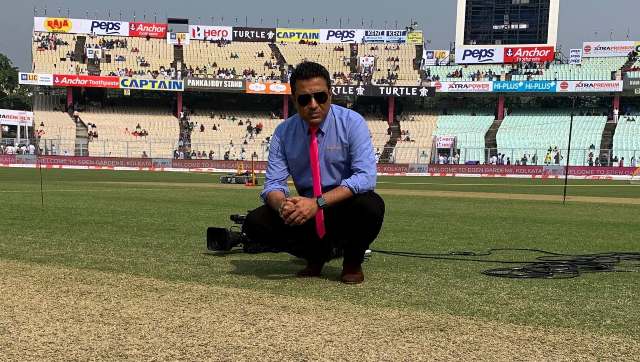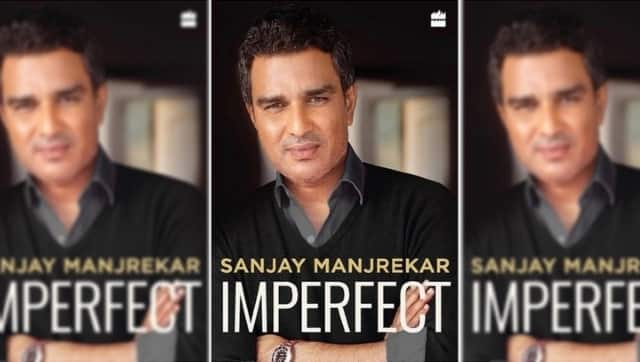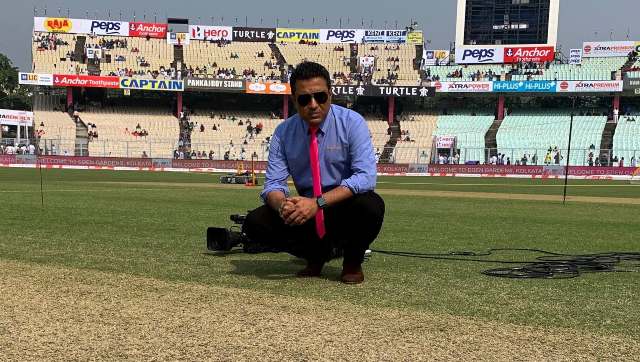Editor’s Note: In every athletes’ life comes a moment that flips his/her career around. A solitary slice of inspiration, a date with destiny, an important result, a wise word, the proverbial turning point may arrive in any shape or form and end up defining the said athlete. In Turning Point, Firstpost’s latest weekly series, we look at some such moments. It seems ages ago, but before Sanjay Manjrekar established himself as a feisty commentator unafraid to irk fans and active cricketers with his straight-talking ways, he was a bloody-minded batsman who valued the technique of run-scoring more than the runs themselves. A product of the famed Bombay school of batsmanship, Manjrekar, much like his idol Sunil Gavaskar, believed in tight defence and copybook style, and unsurprisingly, scored bucketful of runs for Mumbai (then Bombay) in domestic cricket. The turning point in his career, however, came a year before his first-class debut when a then 18-year-old Manjrekar was still finding his feet in serious cricket, much less dreaming of an India cap. He had already got the purists to take note of his technical correctness, but the lack of big scores was destined to keep him from the proverbial giant leap in the Bombay circuit bubbling with stalwarts. “I remember I would get a lot of 30s and 40s, but the big scores were just not coming. In Mumbai cricket, that is not going to take you anywhere,” he told Firstpost. [caption id=“attachment_8594041” align=“alignnone” width=“640”]  Sanjay Manjrekar had nine-year long career playing for India. Image: Twitter/@sanjaymanjrekar[/caption] In 1983, Manjrekar was selected to represent Mumbai University in the inter-university tournament in Baroda. Before leaving for the competition, he got a simple, but timely, advice from former Mumbai player Milind Rege. “Milind was one of the selectors of the University team. He told me before the tour that I need to get big scores if I have to make it big. Scores of 30s and 40s are not going to help. He told me to concentrate harder. I remember asking him, ‘What do you mean by concentrate harder?’ “He was slightly taken aback and gave me an important tip. He told me to play every ball as if your life depended on it. Every ball. That became an important mantra for me and I employed that in my innings on that University tour. I would say that advice was the turning point in my career because it made me the batsman I eventually became,” he recalled. Milind Rege’s words changed the course of Manjrekar’s career. From a batsman who would often get out after getting in, he transformed into an insatiable run-scoring machine. Six consecutive hundreds on that University tour followed. “In hindsight, I can say that I really needed that advice because until then, I never knew how to get a big hundred and how to get that concentration going. I understood that the intensity needs to be the same for the first 30 runs and the next 70 runs. Back then, it came as a revelation to me, and as I grew into the sport, it became my second nature,” he said. The glut of tons on that productive University tour fast-tracked him into the Mumbai Ranji team for the 1984-85 season, aided in no small measure by the fact that quite a few first-choice batsmen were on India duty. Manjrekar debuted in the quarter-final against Haryana in Faridabad where the hosts had laid out a raging turner, but Rege’s advice held the youngster in good stead. Gradually, application at the wicket and occupation of the crease became his hallmark, and word began to spread. “I had a great first year at first-class level. I was among the top-scorers of my debut game, which was played on a tricky wicket and with late Rajinder Goel in the opposition,” he said. [caption id=“attachment_8592471” align=“alignnone” width=“640”]  Sanjay Manjrekar’s autobiography is a deep dive into his obsession for batting perfection.[/caption] Among the seniors who guided Manjrekar early, the role of Sandip Patil and Dilip Sardesai stands out. A two-month batting clinic headed by Sardesai instilled the virtues of discipline in the youngster, while Patil, the dashing right-hander, came into the picture after Manjrekar had broken into the Mumbai Ranji squad. Patil had already played for India for a few seasons and was Mumbai’s captain in the 1984-85 season. “He (Patil) gave me a lot of belief and confidence. When I was drafted into the Mumbai squad and it was decided that I’ll debut in the quarter-final against Haryana, Sandip Patil asked me which number I’d like to bat on. Like a typical youngster, I said any number. He told me ‘When you play for India, never say any number, because they’ll shuffle you everywhere. Just tell where you’d like t bat and leave the rest to the captain.’ To talk about India even before I had even debuted made me feel special.” Manjrekar’s second season was quite ordinary, but he came roaring back in the next and reeled off a series of scores when the team needed them the most. An India debut became inevitable. After an ordinary start at home against West Indies in 1987, Manjrekar lost his place in the side for about 18 months before coming into his own against the same opposition in the Bridgetown Test. A first-innings ton was followed by another in the next tour to Pakistan, which also witnessed his maiden double hundred. “Dilip Vengsarkar and Ravi Shastri played an important role in my career when I had broken into the Indian team. When I got a ton in Barbados, Ravi called up my coach in Mumbai and said, ‘Well done, you’ve given India a 10-year player.’ He called me ‘dus saal ka ghoda.’ Vengsarkar was my first captain (for India), and I could see the belief he had in me. Those are the people who formed an important cornerstone in my career,” the 55-year-old remembered. Things, however, did not go according to plan for Manjrekar after that Pakistan tour as a slip in form and an enduring obsession with technical correctness colluded to cut short his career at 37 Tests and 74 ODIs. Manjrekar played his last international match in November 1996, and after one more first-class season, called time on his cricket career. Television commentary were to be his next stop. As cricket broadcasting began to hit the upward curve thanks to the boom in cable network, Manjrekar’s astute analysis found a platform. The turning point in his new career arrived in the form of another advice, this time from Ravi Shastri. Like Manjrekar, Shastri had transitioned into the broadcasting role soon after his retirement as a cricketer, and along with Harsha Bhogle, was one of the few Indian voices that evoked respect and recognition. “Shastri was an established commentator when I came in. When you break in that kind of a job, you need people to make you feel comfortable and tell you that you are good. Ravi Shastri did that to me. He told me on my face to a director that Sanjay doesn’t know how good a commentator he is. That compliment stuck with me and it confirmed to me that I can make it here. I would say that it was a major turning point in my commentary career,” said Manjrekar. Soon, he impressed the likes of Tony Greig and Ian Chappell with his wit and sharp observations and went on to establish himself in his second career that has far outlived his first. However, it all began with a seemingly hackneyed advice on that non-descript day in Mumbai 37 years ago, that were to be the turning point in Sanjay Manjrekar’s life. Click here to read more pieces from this series
Former Mumbai cricketer Milind Rege’s timely advice changed the course of Sanjay Manjrekar’s career. From a batsman who would often get out after getting in, he transformed into an insatiable run-scoring machine.
Advertisement
End of Article


)

)
)
)
)
)
)
)
)



